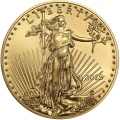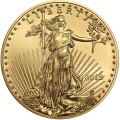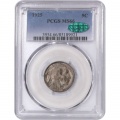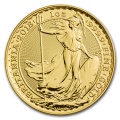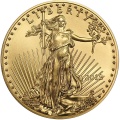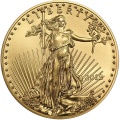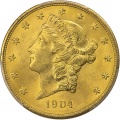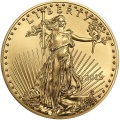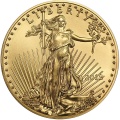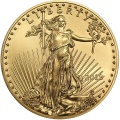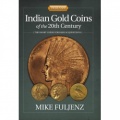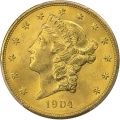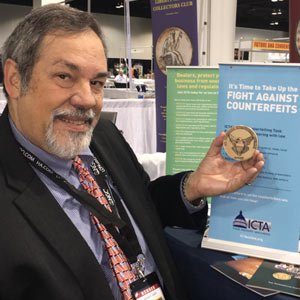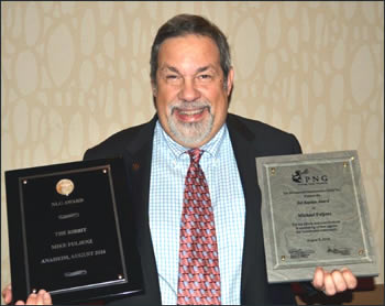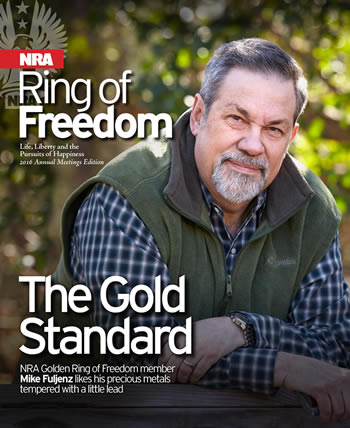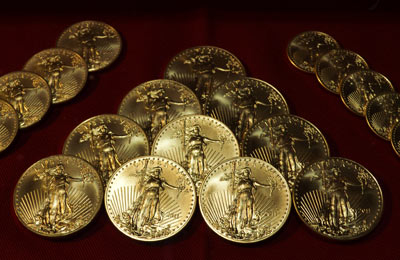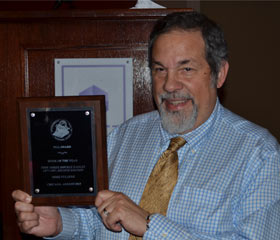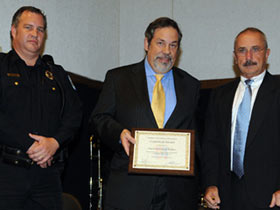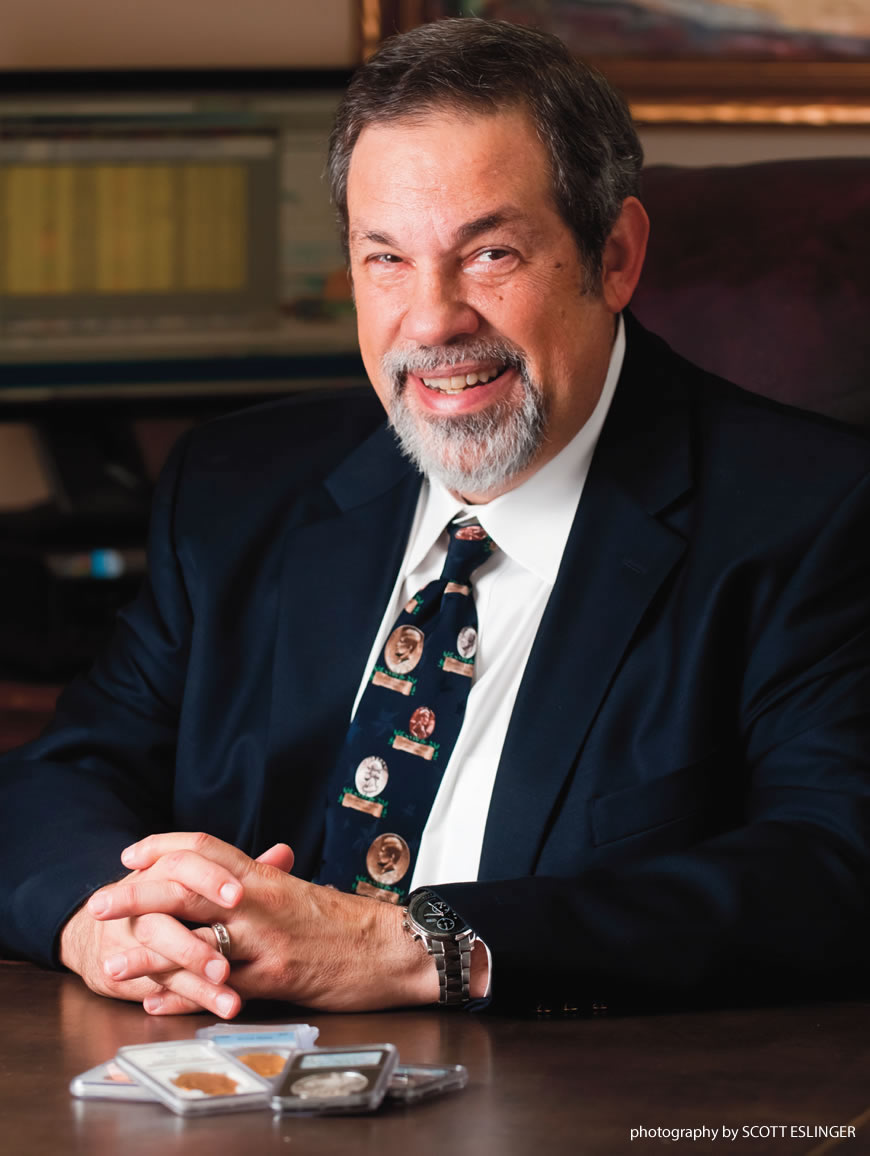September 2020 - Week 5 Edition
Citicorp Still Sees New Gold Highs over $2,100 by Year’s End
Even as gold prices began falling last week, Citicorp was predicting record highs by year’s end. On Tuesday, September 22, Bloomberg reported Citigroup was predicting “gold could hit a record before the year-end, aided in part by the risks surrounding the U.S. presidential election.” Uncertainty over the outcome and potential delays with the vote count could “be under-appreciated by precious metals markets,” said Citicorp analysts, including Aakash Doshi, in their quarterly commodities outlook.
Citigroup analysts forecast a $200 per ounce surge from Tuesday’s levels of around $1,900, which implies $2,100 gold by December 31.* Citi cited rising investor concern about the election, which took on added tension after the death of Justice Ruth Bader Ginsburg and the race to replace her on the U.S. Supreme Court. The election “could be an extraordinary catalyst for gold flat price and volatility skew late in the fourth quarter, even though historically there is no clear pattern for gold trading or price volatility into and after U.S. elections,” Citi said. “That is one reason why we expect gold prices to hit fresh records before year-end.” In addition, Citi is positive on gold amid low interest rates.
*For reference, Citi’s report was written when the gold futures price traded at $1,894.20 an ounce on the COMEX (Gold Futures). The record high price for the most-active futures price was $2,089.20 per ounce on August 7.
Gold and Silver Recover
Gold and stocks both declined last week, as the dollar strengthened after falling for six months. The dollar strengthened as the euro fell, based mostly on a resurgence of COVID cases in major European nations, including Spain and France. Gold suffered its worst week since March and silver fell even faster last week to $22. However, gold and silver recovered Monday morning on a weaker dollar, following a weak durable goods report and fears that the colder months could bring a resurgence in COVID cases.
Recalling George Washington’s Winters Struggling with Worthless Paper “Continentals”
History has made General George Washington’s winter in Valley Forge, PA (1777-78) a story of great courage, and indeed it was, but the next three winters with his dwindling army in northern winter camps were much more trying. Washington’s last major battle was at Monmouth, New Jersey, June 28, 1778. It was a draw after Washington rallied his retreating troops. The following three years and four months were a tale of strategic retreats with a dwindling army and few supplies from a bankrupt nation and Congress, using a worthless currency called “The Continental.” Many farmers preferred selling their produce to the British Army with their “hard” currency, the British pound, thereby impoverishing the Patriot army.
Here are two portraits of the U.S. Army entering their winter quarters in 1779 and 1780, taken from Ron Chernow’s “Washington: A Life.” He is the author who wrote the biography of Alexander Hamilton, which became the basis for the Broadway musical, “Hamilton,” and his most recent biography is “Grant.”
The Winter of 1779-80 in Morristown, New Jersey: “Washington braced for a winter that, for sheer misery, threatened to rival the trials of Valley Forge. As early as October, there wasn’t a single pair of shoes in army depots, and the situation was equally lamentable for shirts, overalls and blankets. Since the Continental currency now fetched only three cents to the dollar, Congress stopped printing money and appealed to the states to pay their own troops. As the latter issued their own paper currency, prices soared even further. Washington captured graphically the ruinous hyperinflation when he told John Jay that ‘a wagon load of money will scarcely purchase a wagon load of provisions.’ To Gouverneur Morris, he protested, ‘A rat, in the shape of a horse, is not to bought at this time for less than 200 pounds.’ He took seriously intelligence reports that the British in Philadelphia had purloined reams of paper used to print currency and planned to crush the rebellion by swamping the country with counterfeit money.”
“Washington faced double jeopardy from the debased currency. Besides placing goods beyond the budget of his quartermasters, it was whittling away his personal fortune. Like many rich planters, Washington had large loans outstanding in Virginia that were being repaid in debased currency.… Washington, finally losing his temper, scolded his stepson, ‘You might as well attempt to pay me in old newspapers and almanacs, with which I can purchase nothing.’ For political reasons, Washington accepted payment for land in Continental currency, so he wouldn’t be seen as questioning American credit, but by the summer of 1779 he could no longer afford these massive losses and discontinued the practice.” (page 366-367).
The Winter of 1780-81 in West Point, New York: “In late November 1780, Washington sent his army into winter quarters, assigning the bulk of them to West Point, while he lodged in a cramped Dutch farm house overlooking the Hudson River at New Windsor, New York. Depressed by this ‘dreary station,’ he had to requisition supplies from nearby residents to set his meager table and pleaded with Congress for emergency funds. ‘We had neither money nor credit,’ he wrote ‘adequate to the purchase of a few boards for doors to our log huts…It would be well for the troops if, like chameleons, they could live upon air, or, like the bear, such their paws for sustenance during the rigor of the approaching season.’ Things grew so grim that Washington’s own horses were starving for want of forage…. The soldiers would receive certificates to compensate them for their depreciated currency…” (Page 388-389)
With this weak and broken army, which soon mutinied in the wake of Benedict Arnold’s recent traitorous defection, it’s a miracle that the mighty British surrendered to this rag-tag bunch at the Battle of Yorktown in Virginia on October 19, 1871.
Given this experience, it’s clear why the 1787 U.S. Constitution decreed that “Congress shall have Power…to coin Money, regulate the Value thereof” (Article I, Section 8) and “no state…shall make any Thing but gold and silver Coin a Tender in Payment of Debts” (Article I, Section 10). It’s also clear why our first President, soured by six hard years and brutal winters of war saw the need for a hard currency:
“Washington viewed the restoration of American credit as the country’s foremost political need…. Throughout the war, he believed that an American victory would have been a foregone conclusion if the country had enjoyed a strong Congress, a sound currency, stable finances and an enduring army” (p. 369).

Important Disclosure Notification: All statements, opinions, pricing, and ideas herein are believed to be reliable, truthful and accurate to the best of the Publisher's knowledge at this time. They are not guaranteed in any way by anybody and are subject to change over time. The Publisher disclaims and is not liable for any claims or losses which may be incurred by third parties while relying on information published herein. Individuals should not look at this publication as giving finance or investment advice or information for their individual suitability. All readers are advised to independently verify all representations made herein or by its representatives for your individual suitability before making your investment or collecting decisions. Arbitration: This company strives to handle customer complaint issues directly with customer in an expeditious manner. In the event an amicable resolution cannot be reached, you agree to accept binding arbitration. Any dispute, controversy, claim or disagreement arising out of or relating to transactions between you and this company shall be resolved by binding arbitration pursuant to the Federal Arbitration Act and conducted in Beaumont, Jefferson County, Texas. It is understood that the parties waive any right to a jury trial. Judgment upon the award rendered by the Arbitrator may be entered in any court having jurisdiction thereof. Reproduction or quotation of this newsletter is prohibited without written permission of the Publisher.

